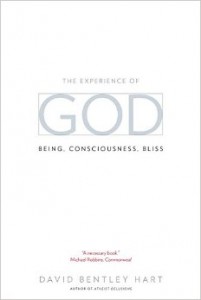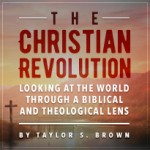![]()
One of the most rewarding areas of study I’ve engaged in over the last several years is in the area of philosophical theology. Even though my primary area of expertise is biblical exegesis and biblical theology, I love reading in the areas of theistic metaphysics and philosophical theology. Reading the work of David Bentley Hart, particularly his The Experience of God: Being, Consciousness, Bliss (Yale University Press, 2013), has fostered this more than anything else. His writings have served as a sort of “gateway drug” for further reading in classical theistic metaphysics.

Of course this also means that I read blogs and articles from other readers of classical theism. One of the consistently best of these voices is Fr. Al Kimel over at Eclectic Orthodoxy. While I disagree with Kimel on several issues (most notably, he is a universalist; I hold to annihilationism/conditional immortality), I find his reflections on classical theistic metaphysics to be incredibly illuminating, as well as being extremely helpful in pointing me toward new books and authors on the subject.
Kimel’s most recent post on Eclectic Orthodoxy offers an excellent introduction into the subject of what theologians call the analogia entis or the “analogy of being.” Kimel interacts extensively with the work of the Jesuit philosopher, W. Norris Clarke. Clarke (and Kimel in interacting with him) writes about how we are able to even speak at all about God only because of God’s gracious act of creation and our participation as imagers (graciously granted by God) in God’s pure, actual, and unconditioned existence. This understanding of God as the utterly transcendent and personal Ground of Being is what Thomas Aquinas referred to as ipsum esse subsistens, “the subsistent act of to be,” and actus purus, “pure actuality.” As Kimel summarizes it:
Following Thomas [Aquinas], Clarke identifies the community of being shared by Creator and creature as one, not of essence or nature, but of esse—the act of existing. The essence of God is not violated. It remains incomprehensible to finite human knowing, as long asserted by the Eastern theological tradition. By the creatio ex nihilo God establishes a proportional relationship to his creatures, thus allowing us to speak of the similarities of creatures to their Creator within a wider dissimilarity.
The whole post, while somewhat dense, is very good and well worth a read, especially if you are interested in philosophical theology.












